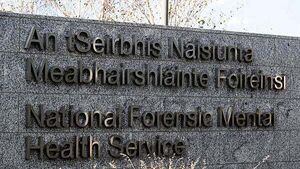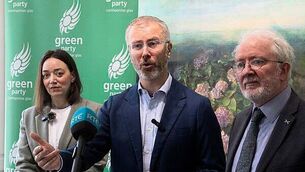Watchdog expresses concern over level of non-compliance at Central Mental Hospital

Seán McCárthaigh
The State’s mental health watchdog has expressed concern about an increase in the number of non-compliance findings detected during an inspection of the Central Mental Hospital in Portrane, Co Dublin last year which have reached “unprecedented” levels.
An unannounced inspection of the CMH by the Mental Health Commission over four days in May 2024 identified 17 areas of non-compliance at the centre – up from 11 during the previous inspection in 2023.
A MHC report shows compliance levels at the CMH, which opened in 2022 following the closure of the previous facility in Dundrum and the transfer of patients to Portrane, have fallen from 82 per cent in 2022 to 51 per cent last year.
It was the lowest compliance rate among reports on 13 mental health services published by the MHC on Wednesday.
MHC inspectors classified one of the non-compliances relating to the rule governing the use of seclusion as a “critical” failure, while 10 of the problem areas were re-occurring.
In addition, five regulatory areas were deemed a higher risk than the previous year.
The inspector of mental health services, James V Lucey, said such a level of non-compliance raised “serious concerns regarding the operation of the approved centre and its potential impact on residents.”
“The inspection findings indicated a lack of consistent practices in relation to governance and management structures within Central Mental Hospital, Portrane,” said Prof Lucey.
The report identified eight incidents between January and March 2024 where there were concerns that the intercom in a seclusion room was not working correctly and which had not been recorded.
It noted there were times when a patient in seclusion could not be heard by staff.
The MHC concluded that the fittings in the seclusion room were “not of a quality as not to endanger the safety of a patient.”
The report also found that not all staff involved in the seclusion of residents had signed a document to show they had read and understood the centre’s policy on seclusion, although they had all received the appropriate training.
In one instance, it found a patient who had been placed in seclusion had not been medically examined by a doctor within the required two-hour period after the start of the seclusion.
In another care, there was no in-person debrief with a patient who was secluded.
Inspectors also found that there were no clocks displaying the day and date in some seclusion rooms, contrary to rules governing seclusion, to support resident orientation for several months, despite being meant to be in place by March 29, 2024.
They also found that risk relating to the transfer of patients in high-secure units for the sole use of seclusion was not recorded with the required control measures on a register.
The report also identified several deficits in relation to the use of mechanical restraints on patients at the CMH.
In one episode, there was no medical examination of a patient being restrained as soon as practicable or within four hours of the commencement of being restrained.
In three cases, no care plans had been developed by a multi-disciplinary team for the patients who were mechanically restrained.
There was also no evidence of a review by a multi-disciplinary team of three episodes of a patient being mechanically restrained.
Other areas deemed at “high” levels of non-compliance included waiting times to see a psychologist which ranged from two weeks to six months and assessing the general health needs of patients at least every six months.
Others included privacy, a failure to assess the nutritional and dietary needs of patients and failings with the recording of searches and the preparation of individual care plans.
The MHC said not all staff had undertaken mandatory training in basic life support, fire safety and the management of violence and aggression as well as safeguarding.
The inspection identified problems with the buildings and noted the centre was not ventilated throughout and had “offensive odours” with some bathroom facilities “extremely malodorous.”
Overall, it found the centre was “not maintained in a good state of repair” and its condition was not developed and maintained with due regards for the safety and well-being of residents, staff and visitors.
The MHC said it issued an immediate action notice to the CMH which responded by providing assurances and undertakings in relation to the non-compliances identified.
They include maintenance and improvement of the monitoring arrangements in seclusion rooms, improvements to risk management arrangements, a review of individual care plans and improvements to systems for monitoring regulatory compliance.
The MHC report praised the Central Mental Hospital for its quality practices in relation to visiting facilities, care of the dying and the provision of information to patients.
The CMH is registered to provide a service to 130 residents but currently has an operational capacity for 114.
The vast majority of patients are detained under the Criminal Law (Insanity) Act 2006.
The facility includes a high secure unit which can accommodate 40 patients.
The MHC report found there were staffing shortages across the facility including nursing, occupational therapy, psychology and social work as well as catering, maintenance and IT.
A total of 22.5 vacancies were identified at the time of the inspection among healthcare staff including 12 nursing roles.





